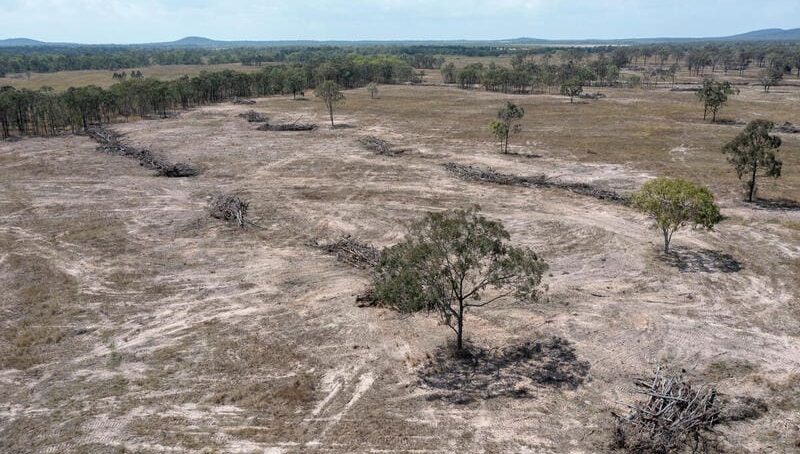WOOLWORTHS has become the first of Australia’s two big supermarkets to officially commit to zero deforestation, announcing it in its annual report today.
Similar to the European Union’s deforestation-related import rules that are set to come into play on December 30 this year, Woolworths has put beef on a list of “high risk” commodities, alongside paper pulp and timber, palm oil, cocoa and soy.
Woolworths’ deforestation policy is set to come into play later this year.
“We are committed to sourcing beef sustainably in partnership with our farmers and suppliers,” a Woolworths spokesperson said.
“We understand that the majority of Australian producers already practice responsible land management, and we believe our no deforestation goal will help promote the sustainability credentials of Australian red meat.”
Definitions of forest have been heavily debated this year, with the industry currently working through its own definition of deforestation.
The Woolworths Group spokesperson said local definitions were the company’s preference.
“We support the creation of a localised definition which recognises Australia’s unique landscape and vegetation, while ensuring responsible land management and meeting international expectations,” the spokesperson said.
Groups like the ACF, the Wilderness Society and Greenpeace, who have been campaigning for Woolworths and Coles to commit to zero deforestation most of this year, have picked a battle they knew they were going to win all along.
Both supermarkets are signed up to an organisation called the “Science Based Targets initiative” (SBTi), which has made “zero deforestation” targets a condition of membership.
Woolworths had a “net-zero deforestation” target in place and has now put that into “no deforestation” across the selected commodities.
Coles only signed up to SBTi at the end of last year and has stopped short of making the commitment. However, its sustainability report said it was addressing deforestation.
“We are currently developing commodity roadmaps to address the potential risk of deforestation,” the report said.
“These roadmaps build on existing programs of work across cocoa, palm oil, timber, pulp and paper, and lay the foundations for future work in beef and soy used in feed for livestock and aquaculture.”
Definitions of forests the centre of debate
An ABC article earlier this week featuring work from former WWF campaigners and the Australian Conservation Foundation claimed that the industry had been pushing back against a global effort to take deforestation out of supply chains and was weaponising definitions of forests to further its cause.
The report conveniently left out the fact that the industry’s peak body Cattle Australia has been working with other supply chain stakeholders to develop a Australian definition of deforestation – even the WWF has been involved in that process.
Ironically, one of the biggest criticisms of the deforestation definition has come from producers who felt they had not been adequately consulted through the first stage of the process.
CA released an “information paper” in June and has told Beef Central that the release of the definition is “imminent”.
Another point that the ABC article did not mention was that the ACF, the Wilderness Society and Greenpeace have been armed with their own definition and “policy guidance” – which is wanting all regrowth that is either 15-year-old or resembles a forest to be classed as a forest.
WWF has kept preferred definitions close to its chest. It has been critical of the CA information paper, but also said CA’s work is a step in the right direction.

